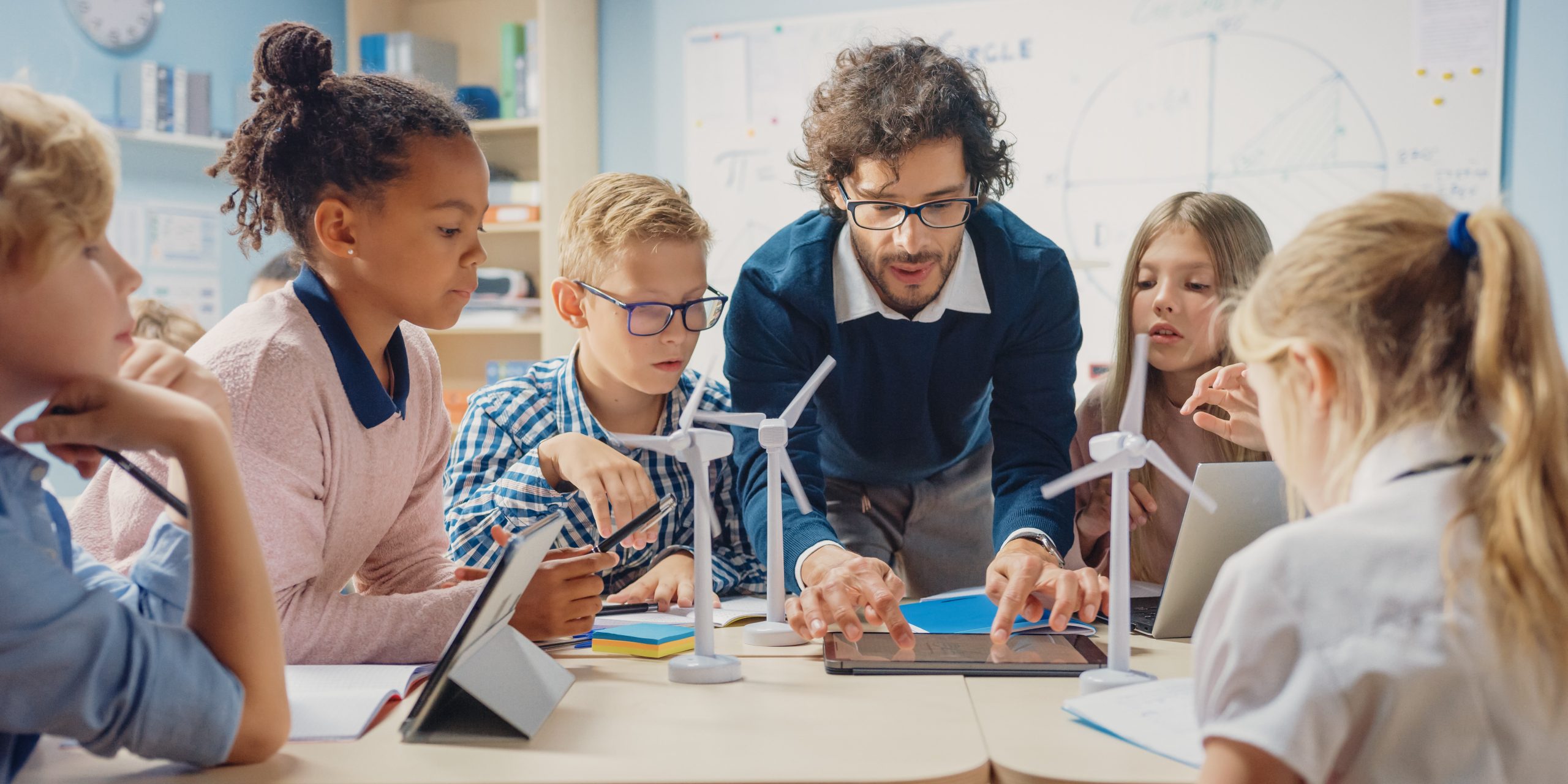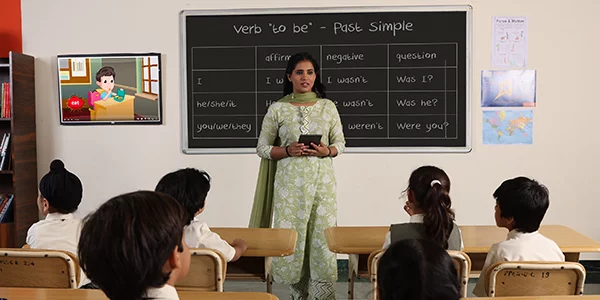Comprehensive Primary Science Tuition Singapore for Primary School Students
Wiki Article
Discover the Crucial Benefits of Comprehending Key Science for Young Learners
The value of main science education for young learners expands much past mere knowledge acquisition; it offers as an essential pillar in developing essential skills such as critical thinking, problem-solving, and creativity. Involving with clinical ideas through inquiry-based and interactive tasks not only grows inquisitiveness however also lays the foundation for durable, confident learners.Enhancing Vital Thinking Abilities
Promoting critical believing abilities in young learners is necessary for their cognitive advancement and future scholastic success. Important reasoning makes it possible for kids to analyze info, evaluate evidence, and make informed choices, which are crucial abilities in today's information-rich society. By taking part in scientific questions, young learners can enhance these abilities as they explore principles through experimentation, monitoring, and thinking.In key science education, instructors can facilitate vital reasoning by encouraging students to ask concerns, create theories, and conduct experiments. This hands-on technique permits youngsters to practice problem-solving and establish rational thinking abilities. When trainees explore the homes of materials or the concepts of movement, they find out to examine their searchings for critically and attract verdicts based on evidence.
Furthermore, conversations and collective jobs can promote important thinking by providing chances for learners to articulate their thoughts, obstacle presumptions, and take into consideration varied viewpoints. By developing an encouraging setting that values questions and representation, teachers can nurture crucial thinking abilities that empower young learners to become lifelong students and independent thinkers. Ultimately, boosting these abilities lays a durable foundation for their future scholastic endeavors and personal development.
Cultivating Inquisitiveness and Expedition

Main scientific research education provides a structured atmosphere where young students can discover different sensations through hands-on experiments and monitorings. By permitting them to communicate with products and take part in inquiry-based learning, teachers develop possibilities for children to develop hypotheses, examine their ideas, and attract final thoughts. Such experiences nurture a feeling of wonder and enjoyment about scientific research.

Structure Self-confidence in Trouble Solving
Structure self-confidence in analytic is an essential component of primary science education and learning that equips young learners to approach challenges with resilience and creative thinking - primary science tuition Singapore. When youngsters are encouraged to engage with clinical principles with hands-on activities and inquiry-based knowing, they develop vital skills in vital thinking and evaluation. This procedure not only boosts their understanding of scientific concepts however additionally promotes a sense of possession over their knowingTo build self-confidence, educators ought to develop a helpful environment where blunders are deemed possibilities for growth as opposed to failings. This motivates students to take dangers and discover different solutions to troubles. By supplying scaffolding and guidance, instructors can help trainees browse complex jobs, slowly increasing their self-reliance in problem-solving circumstances.
In addition, joint learning experiences, such as group projects or experiments, can further enhance students' confidence as they find out to articulate their thoughts and listen to others' perspectives. These interactions support social abilities and enhance the idea that analytical is commonly a collective venture. Ultimately, cultivating self-confidence in analytic prepares young students for future scholastic obstacles and furnishes them with the tools necessary for long-lasting understanding.
Encouraging Creative Thinking and Development
In the realm of primary scientific research education and learning, urging creative thinking and innovation is essential for growing a vibrant understanding atmosphere. By fostering a culture where young learners can check out ideas and experiment freely, educators aid trainees develop critical believing skills and an interest for exploration. Imagination in science urges children to ask inquiries, create hypotheses, and take part in hands-on activities that boost their creativity.Integrating open-ended tasks and inquiry-based knowing right into the educational program allows pupils to express their one-of-a-kind perspectives and remedies. As an example, when entrusted with addressing a problem associated to their setting, students can conceptualize numerous methods, leading to innovative outcomes that showcase their creativity. This not company website just deepens their understanding of scientific ideas however additionally infuses a sense of ownership over their understanding procedure.
Additionally, imaginative science education and learning nurtures partnership among peers, as why not try these out pupils typically share concepts and improve each other's understandings - primary science tuition Singapore. This collaborative spirit promotes not only development however likewise necessary social skills. Hence, by prioritizing creative thinking and innovation in primary science education, we empower young students to think critically, welcome obstacles, and picture opportunities, laying a solid foundation for long-lasting understanding and expedition
Planning For Future Discovering Difficulties
Young learners' capacity to browse future discovering difficulties depends upon a strong structure in primary science education and learning. This foundational understanding gears up students with essential assuming skills and a systematic strategy to analytical, important for tackling intricate issues in an ever-evolving globe. Main science promotes inquiry-based understanding, urging trainees to ask questions, discover hypotheses, and involve in hands-on experiments.As they develop these abilities, learners become experienced at examining data, acknowledging patterns, and drawing notified conclusions. Such expertises are crucial not only in clinical fields yet also in math, engineering, and innovation (STEM), where interdisciplinary knowledge is progressively vital.
Furthermore, key science education grows a feeling of curiosity and durability in young students, enabling them to see challenges as chances for development. As they encounter and conquer barriers in their scientific expeditions, they construct confidence in their capacity to adjust and introduce.
Ultimately, a solid structure in primary science not just prepares young students for scholastic pursuits but also furnishes them with the tools needed for long-lasting understanding and adaptability in a rapidly changing global landscape. By purchasing primary scientific research education, we are purchasing the future capacity of our learners.
Conclusion
Understanding main science is vital for young learners, as it cultivates vital thinking, interest, and creativity. Inevitably, the benefits of main science education and learning prepare youngsters for future academic searches and instill long-lasting learning routines essential for prospering in an read here ever-evolving globe.The value of key science education and learning for young students extends much past plain understanding procurement; it serves as an essential column in developing vital abilities such as crucial reasoning, analytic, and imagination. By developing a supportive atmosphere that values inquiry and reflection, teachers can nurture essential thinking skills that equip young students to become independent thinkers and lifelong students. Therefore, by focusing on creative thinking and technology in primary science education and learning, we encourage young students to assume seriously, welcome obstacles, and envision possibilities, laying a strong structure for lifelong learning and exploration.
Young students' capability to navigate future knowing difficulties pivots on a solid foundation in primary science education and learning.Recognizing key science is vital for young students, as it promotes vital thinking, curiosity, and creativity.
Report this wiki page